第89章 Women's Clubs and Woman Suffrage (2)
Of course, the clubs refused to accept or even to consider his suggestions; they were quite competent to decide for themselves the particular subjects for their meetings, they argued; they did not care to be tutored or guided, particularly by Bok.They were much too angry with him even to admit that his suggestions were practical and in order.
But he knew, of course, that they would adopt them of their own volition--under cover, perhaps, but that made no difference, so long as the end was accomplished.One club after another, during the following years, changed its programme, and soon the supposed cultural interest had yielded first place to the needful civic questions.
For years, however, the club-women of America did not forgive Bok.They refused to buy or countenance his magazine, and periodically they attacked it or made light of it.But he knew he had made his point, and was content to leave it to time to heal the wounds.This came years afterward, when Mrs.Pennypacker became president of the General Federation of Women's Clubs and Mrs.Rudolph Blankenburg, vice-president.
Those two far-seeing women and Bok arranged that an official department of the Federation should find a place in The Ladies' Home Journal, with Mrs.Pennypacker as editor and Mrs.Blankenburg, who lived in Philadelphia, as the resident consulting editor.The idea was arranged agreeably to all three; the Federation officially endorsed its president's suggestion, and for several years the department was one of the most successful in the magazine.
The breach had been healed; two powerful forces were working together, as they should, for the mutual good of the American woman.No relations could have been pleasanter than those between the editor-in-chief of the magazine and the two departmental editors.The report was purposely set afloat that Bok had withdrawn from his position of antagonism (?) toward women's clubs, and this gave great satisfaction to thousands of women club-members and made everybody happy!
At this time the question of suffrage for women was fast becoming a prominent issue, and naturally Bok was asked to take a stand on the question in his magazine.No man sat at a larger gateway to learn the sentiments of numbers of women on any subject.He read his vast correspondence carefully.He consulted women of every grade of intelligence and in every station in life.Then he caused a straw-vote to be taken among a selected list of thousands of his subscribers in large cities and in small towns.The result of all these inquiries was most emphatic and clear: by far the overwhelming majority of the women approached either were opposed to the ballot or were indifferent to it.
Those who desired to try the experiment were negligible in number.So far as the sentiment of any wide public can be secured on any given topic, this seemed to be the dominant opinion.
Bok then instituted a systematic investigation of conditions in those states where women had voted for years; but he could not see, from a thoughtful study of his investigations, that much had been accomplished.
The results certainly did not measure up to the prophecies constantly advanced by the advocates of a nation-wide equal suffrage.
The editor now carefully looked into the speeches of the suffragists, examined the platform of the National body in favor of woman suffrage, and talked at length with such leaders in the movement as Susan B.
Anthony, Julia Ward Howe, Anna Howard Shaw, and Jane Addams.
All this time Bok had kept his own mind open.He was ready to have the magazine, for whose editorial policy he was responsible, advocate that side of the issue which seemed for the best interests of the American woman.
The arguments that a woman should not have a vote because she was a woman; that it would interfere with her work in the home; that it would make her more masculine; that it would take her out of her own home;that it was a blow at domesticity and an actual menace to the home life of America--these did not weight with him.There was only one question for him to settle: Was the ballot something which, in its demonstrated value or in its potentiality, would serve the best interests of American womanhood?
After all his investigations of both sides of the question, Bok decided upon a negative answer.He felt that American women were not ready to exercise the privilege intelligently and that their mental attitude was against it.
Forthwith he said so in his magazine.And the storm broke.The denunciations brought down upon him by his attitude toward woman's clubs was as nothing compared to what was now let loose.The attacks were bitter.His arguments were ignored; and the suffragists evidently decided to concentrate their criticisms upon the youthful years of the editor.They regarded this as a most vulnerable point of attack, and reams of paper were used to prove that the opinion of a man so young in years and so necessarily unformed in his judgment was of no value.